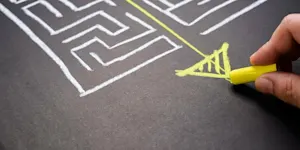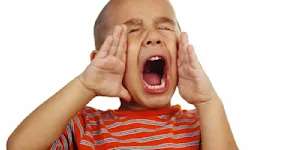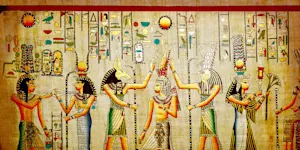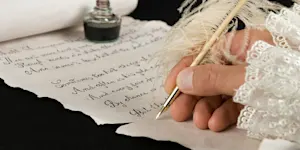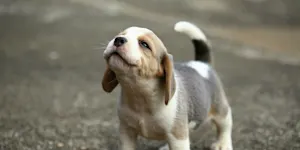What Makes This Word Tick
The word "anthropomorphic" is all about attributing human traits, emotions, or intentions to non-human entities. It's a delightful turn of language that allows us to see the world with a sense of whimsy and wonder. Think of all those charming animals in children’s books that seem to have human-like narratives — that's anthropomorphism at work!
If Anthropomorphic Were a Person…
If anthropomorphic were a person, it would likely be an imaginative artist, always seeing the world through a creative lens. This character would charm at dinner parties by granting personality to inanimate objects, spinning tales about the secret lives of teapots and top hats.
How This Word Has Changed Over Time
Over centuries, the essence of "anthropomorphic" has remained fairly constant, reflecting our age-old tendency to view the world in our own image. With roots back in mythology — where gods and spirits often took on human forms — to present-day AI assistants given human traits, the word has retained its appeal, even as its applications have evolved.
Old Sayings and Proverbs That Use Anthropomorphic
While there aren't ancient proverbs that directly use "anthropomorphic," the concept sneaks into idiomatic sayings. Phrases like "the eyes are the windows to the soul" imply human qualities in ways that blur the lines between people and the poetic innate qualities of objects.
Surprising Facts About Anthropomorphic
Did you know that researchers believe our ability to anthropomorphize may help foster empathy? By projecting human emotions onto animals or objects, we might better understand and relate to them. It's also a big player in marketing, where brands often use it to create relatable mascots.
Out and About With This Word
You'll often find "anthropomorphic" in discussions about storytelling, animation, and even robotics. It's a staple in creative writing courses, popular culture, and debates about our interactions with technology — even your smartphone's virtual assistant carries a bit of an anthropomorphic flair!
Pop Culture Moments Where Anthropomorphic Was Used
From Mickey Mouse to the robots of "Star Wars," anthropomorphism is a staple in pop culture. These characters, while not human, have a plethora of human traits that make their stories relatable and entertaining. It's a consistent tool to engage audiences across movies and literature.
The Word in Literature
In literature, anthropomorphic elements appear in works ranging from Aesop's Fables to George Orwell's "Animal Farm." Such works use animals with human traits to offer commentary on human society. Through anthropomorphism, literature reflects and critiques the human condition in an accessible way.
Moments in History with Anthropomorphic
People have anthropomorphized deities throughout history, seeing gods with human features and emotions in Greek, Roman, and Egyptian mythologies. This tendency has wielded influence in arts, culture, and religion, demonstrating the enduring power of anthropomorphism in connecting humans with complex concepts.
This Word Around the World
Globally, cultures have their unique takes on anthropomorphism. In Japan, there's the concept of "kami" where spirits inhabit natural elements. In Italy, popular Pinocchio stories about a puppet longing to be a real boy reflect our universal tendency to blur the lines between human and non-human worlds.
Where Does It Come From?
Originating from the Greek words "anthropos" (human) and "morphe" (form), the term anthropomorphic is deeply rooted in linguistics. It's a testament to how language and culture intertwine, reflecting our timeless inclination to see ourselves mirrored in the world around us.
How People Misuse This Word
People sometimes use "anthropomorphic" to describe any attribution of human traits, regardless of context, but it technically should involve non-human characters or entities. Additionally, people might confuse anthropomorphic actions with simple resemblance or metaphorical expressions.
Words It’s Often Confused With
Anthropocentric: Focusing on human beings as the central element of the universe, often confused due to the 'anthro-' prefix.
Personification: Giving human traits to inanimate objects, similar but typically more metaphorical and poetic.
Zoomorphic: Attributing animal traits to humans, the reverse of anthropomorphism.
Additional Synonyms and Antonyms
Synonyms for anthropomorphic might include humanlike or humanoid. Its antonyms could be nonhuman or inanimate.
Want to Try It Out in a Sentence?
"That cartoon fox behaves in such an anthropomorphic manner, it almost feels like he'd be my perfect dinner guest!"


